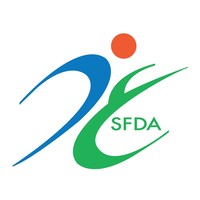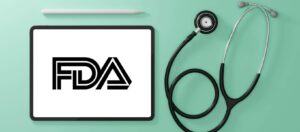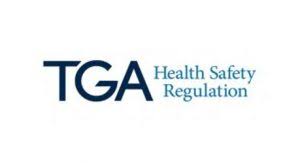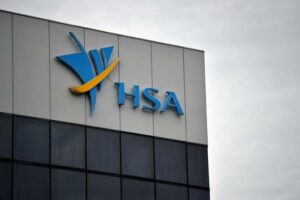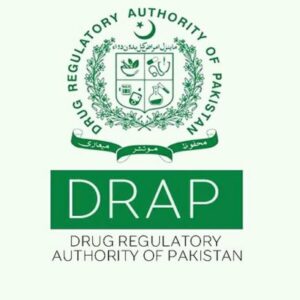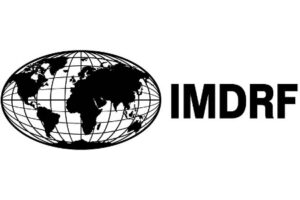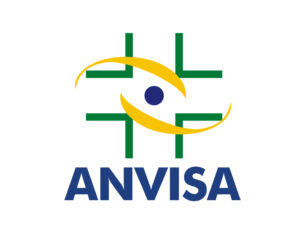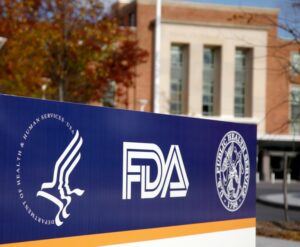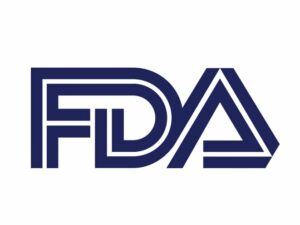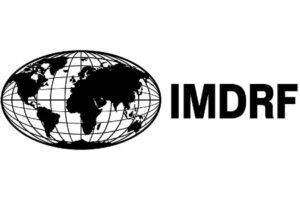The new article addresses the aspects related to various matters associated with the licensing process for establishment licenses.
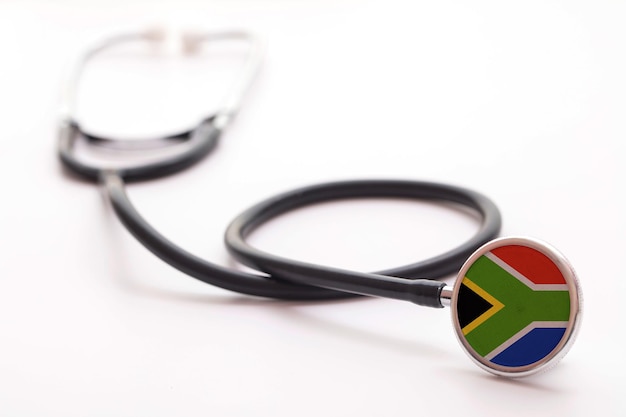
Table of content
The South African Health Products Regulatory Authority (SAHPRA), a country’s agency in the sphere of healthcare products, has published a guidance document dedicated to licensing entities involved in operations with medical devices.
The document provides an overview of the applicable regulatory requirements, as well as additional clarifications and recommendations to be taken into consideration by medical device manufacturers and other parties involved to ensure compliance thereto.
The authority also reserves the right to make changes to the guidelines and recommendations provided therein, should such changes be reasonably necessary to reflect corresponding amendments to the underlying legislation.
The document provides an overview of the key guidelines and regulations to be considered by the parties intended to conduct activities associated with manufacturing, distributing, importing, and storing medical devices, since some of the related activities, under the applicable legislation, are subject to licensing.
Authorization and Licensing Overview
The guidance highlights the key points associated with licensing requirements including, inter alia, the following ones:
- Authorized Representative for Multiple Companies: According to the document an individual can be the Authorized Representative for more than one company in two specific scenarios:
- When the companies are located at the same address or within the same province; or
- When the companies are under the regulatory oversight of a single head office.
- Multiple Licenses on the Same Premises: As described in the guidelines, companies are permitted to apply for different types of licenses while operating on the same premises.
This scenario often occurs when there are sub-units or departments within a larger company.

Application Process and Amendments
The guidance further describes the approach to be applied concerning changes to existing authorization or applications thereto. In particular, it is stated that once an application has been screened or evaluated, no changes are allowed.
Any modifications at this stage are considered amendments, requiring the applicant to follow a separate amendment application procedure after the conclusion of the ongoing application process.
Another aspect addressed in the document relates to the impact of shareholder departure.
As explained by the authority, the departure of a shareholder from a company is not relevant unless the shareholder is the authorized representative or the license holder.
Meaningful Disruption
According to the guidance, this term refers to a significant change in production that leads to a more than negligible reduction in the supply of a device, impacting the manufacturer’s ability to fulfil orders or meet expected demand.
The FDA emphasizes that manufacturers should base their notifications on their own capacities and supply situations, without considering competitors’ capacities or perceived market demands.
The authority also clarifies exceptions to meaningful disruptions, such as routine maintenance or insignificant manufacturing changes, provided the manufacturer expects to resume operations within a reasonable time frame (not exceeding six months).
Usage of COVID-19 Antibody Tests
The authority pays special attention to the use of antibody tests associated with the Coronavirus Disease 2019 (COVID-19) caused by the virus SARS CoV-2 or the “novel coronavirus”.
In particular, concerning diagnostic limitations, it is stated that COVID-19 antibody tests are not suitable for diagnosing active COVID-19 cases.
These tests are designed to detect if the body has initiated a response to a SARS-CoV-2 infection, rather than identifying the presence of the SARS-CoV-2 virus itself.
When it comes to the application of test results, the authority explains that the results from COVID-19 antibody tests are instrumental in guiding patient management decisions and determining the necessity for quarantine, isolation, and contact tracing.
Referenced Documents and Validity
The guidelines also provide references to other guidance documents developed by the authority, addressing in detail some specific aspects, such as:
- Guidelines for licensing of medical devices and IVDs.
- Licenses for wholesalers of medical devices and IVDs.
- Position papers on amendments.
- Guidelines for classification and quality control of medical devices.
The guidelines remain valid for five years from the date of the latest revision. The present document is intended to replace the previous “Questions & Answers: Licensing of Medical Devices/ IVDs” document and is subject to review either at the end of this period or as required.
Application Procedure
To assist the parties involved, the guidelines also provide a step-by-step application guide covering such aspects as:
- Navigating to the SAHPRA website.
- Selecting the relevant tabs for medical devices and application forms.
- Downloading and completing the appropriate form.
- Submitting the form and required supporting documents to the specified email addresses (specific emails for COVID-19-related and regular applications).
The authority also mentions that an application must be accompanied by a cover letter, proof of payment, site master file (for wholesale applications), quality manual (for distributor or manufacturer applications), CV of the authorized representative, a PDF application form initiated on each page by the authorized representative, and a declaration signed by the authorized representative.
Conclusion
In summary, the present guidance outlines the most critical aspects of the guidelines and regulations for the licensing of medical devices and IVDs as per the documentation provided by SAHPRA.
The document is intended to assist medical device manufacturers, distributors, wholesalers, and other parties involved with interpreting and following the applicable regulatory requirements they are subject to under the existing legal framework.
How Can RegDesk Help?
RegDesk is a holistic Regulatory Information Management System that provides medical device and pharma companies with regulatory intelligence for over 120 markets worldwide. It can help you prepare and publish global applications, manage standards, run change assessments, and obtain real-time alerts on regulatory changes through a centralized platform. Our clients also have access to our network of over 4000 compliance experts worldwide to obtain verification on critical questions. Global expansion has never been this simple.
Want to know more about our solutions? Speak to a RegDesk Expert today!
-->- SEO Powered Content & PR Distribution. Get Amplified Today.
- PlatoData.Network Vertical Generative Ai. Empower Yourself. Access Here.
- PlatoAiStream. Web3 Intelligence. Knowledge Amplified. Access Here.
- PlatoESG. Carbon, CleanTech, Energy, Environment, Solar, Waste Management. Access Here.
- PlatoHealth. Biotech and Clinical Trials Intelligence. Access Here.
- Source: https://www.regdesk.co/sahpra-guidelines-on-establishment-licensing-general-questions/
- :has
- :is
- :not
- 1
- 120
- a
- ability
- About
- access
- accompanied
- According
- active
- activities
- Additional
- address
- addressed
- addresses
- addressing
- African
- After
- agency
- alerts
- allowed
- also
- amendments
- an
- and
- answers
- antibody
- applicable
- Application
- applications
- applied
- Apply
- approach
- appropriate
- ARE
- article
- AS
- aspect
- aspects
- assessments
- assist
- associated
- At
- attention
- authority
- authorization
- authorized
- base
- BE
- been
- body
- by
- CAN
- capacities
- cases
- caused
- centralized
- change
- Changes
- classification
- clients
- comes
- Companies
- company
- completing
- compliance
- concerning
- conclusion
- conditions
- Conduct
- consideration
- considered
- considering
- contact
- contact tracing
- control
- Corresponding
- country’s
- cover
- covering
- COVID-19
- critical
- Date
- decisions
- dedicated
- Demand
- demands
- departments
- departure
- described
- describes
- Design
- designed
- detail
- detect
- determining
- developed
- device
- Devices
- diagnosing
- diagnostic
- different
- Disease
- disruptions
- distributing
- distributor
- distributors
- document
- documentation
- documents
- each
- either
- emails
- emphasizes
- end
- ensure
- entities
- establishment
- Ether (ETH)
- evaluated
- existing
- expansion
- expected
- expects
- expert
- experts
- explained
- Explains
- fda
- File
- five
- follow
- following
- For
- form
- forms
- FRAME
- Framework
- from
- further
- General
- Global
- global expansion
- guidance
- guide
- guidelines
- guiding
- Have
- head
- Health
- healthcare
- help
- highlights
- holder
- holistic
- HTTPS
- identifying
- if
- Impact
- impacting
- importing
- in
- Including
- individual
- infection
- information
- initiated
- instrumental
- Intelligence
- intended
- into
- involved
- isolation
- IT
- itself
- jpg
- Key
- Know
- larger
- latest
- Leads
- Legal
- legal framework
- Legislation
- letter
- License
- licenses
- Licensing
- licensing requirements
- limitations
- located
- maintenance
- make
- manage
- management
- management system
- manual
- Manufacturer
- Manufacturers
- manufacturing
- Market
- Markets
- master
- Matters
- max-width
- meaningful
- medical
- medical device
- medical devices
- Meet
- mentions
- Modifications
- months
- more
- most
- multiple
- must
- necessary
- necessity
- network
- never
- New
- no
- notification
- notifications
- obtain
- of
- Office
- often
- on
- once
- ONE
- ones
- ongoing
- operating
- Operations
- or
- orders
- Other
- our
- outlines
- over
- Oversight
- overview
- own
- page
- papers
- particular
- parties
- patient
- payment
- pays
- per
- perceived
- period
- Pharma
- platform
- plato
- Plato Data Intelligence
- PlatoData
- points
- Prepare
- presence
- present
- previous
- procedure
- process
- Production
- Products
- proof
- provide
- provided
- provides
- publish
- published
- Q&A
- quality
- quarantine
- Questions
- rather
- real-time
- reasonable
- recommendations
- reduction
- references
- refers
- reflect
- regular
- regulations
- regulatory
- related
- relates
- relevant
- remain
- replace
- representative
- required
- Requirements
- reserves
- response
- Results
- resume
- review
- right
- routine
- Run
- same
- SARS
- SARS-CoV-2
- scenario
- scenarios
- separate
- shareholder
- should
- signed
- significant
- Simple
- since
- single
- site
- situations
- SIX
- Six months
- Solutions
- some
- Source
- speak
- special
- specific
- specified
- Sponsored
- Stage
- standards
- stated
- subject
- such
- suitable
- SUMMARY
- supply
- Supporting
- system
- taken
- term
- test
- tests
- than
- that
- The
- their
- There.
- therein
- they
- this
- Through
- time
- to
- Tracing
- two
- types
- under
- underlying
- use
- valid
- various
- Verification
- virus
- want
- Website
- WELL
- when
- while
- wholesale
- with
- within
- without
- worldwide
- years
- you
- zephyrnet

